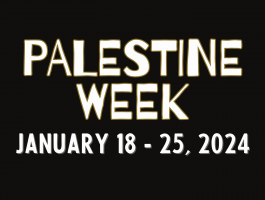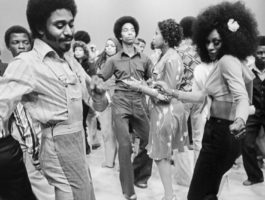 From 1952 to 1988, one of the most dramatic aspects of the modern Olympics has been the sports rivalry between the US and the Soviet Union. The competition between Russian and American athletes was presented as a symbolic struggle between the two ideological systems. The games have arguably become more important in the political sphere, the success or failure of the Olympic teams, measured by overall medal counts, often is an indication of the strength of a country. President Carter’s decision to use an Olympic boycott as a diplomatic weapon ended the idealistic notion that the games were insulated from the international power struggle. On the American side there was a will to show the benefits of a liberal democracy and on the Soviet side, athletic victories over the capitalist nations were to be seen as a sign of ideological superiority. There was a widely held perception that the games were a continuation of politics, and this trend may be ongoing with the scheduling of the Olympic games – a tradition of comradery between the nations – during the holiest of months for the over 3,000 Muslim athletes competing this year and the 1.2 billion Muslims around the globe.
From 1952 to 1988, one of the most dramatic aspects of the modern Olympics has been the sports rivalry between the US and the Soviet Union. The competition between Russian and American athletes was presented as a symbolic struggle between the two ideological systems. The games have arguably become more important in the political sphere, the success or failure of the Olympic teams, measured by overall medal counts, often is an indication of the strength of a country. President Carter’s decision to use an Olympic boycott as a diplomatic weapon ended the idealistic notion that the games were insulated from the international power struggle. On the American side there was a will to show the benefits of a liberal democracy and on the Soviet side, athletic victories over the capitalist nations were to be seen as a sign of ideological superiority. There was a widely held perception that the games were a continuation of politics, and this trend may be ongoing with the scheduling of the Olympic games – a tradition of comradery between the nations – during the holiest of months for the over 3,000 Muslim athletes competing this year and the 1.2 billion Muslims around the globe.
Muslims observing the month-long Ramadan fast are not allowed to eat or drink anything at all, not even water, from sunrise to sunset. But the Quran does allow for some exceptions. In the Quran there are verses that talk about people who are sick, women menstruating, or people who are traveling that are exempted from fasting. Many Muslim Olympians believe they come under the traveling exemption. Palestinian judoka Maher Abu Rmeileh is one of the many Muslims who will not fast for Ramadan during the Olympics, citing permission from religious scholars who say that Islam allows exceptions for Muslims traveling. Rmeileh will make up the days he missed fasting when he returns home from the games (Wash Post) . Mohammed Sbihi on the British Rowing Team decided not to fast as well. He will be making extra donations to needy families in compensation. Others still observe the Ramadan fast and show that one can still perform and win medals. In 2008 for example, Saudi Paralympic triple jumper Ossemah Masoud Alshinqiti fasted and won the gold medal (PBS). Fortunately, The Olympic Village dining room will observe some religious rules and serve Kosher and halal foods and prepare special evening snack packs for Muslim athletes fasting during the day for Ramadan.
Question to ponder- Does the scheduling of the games during the holiest of months for Muslims have any greater political meanings?




